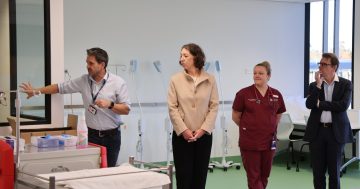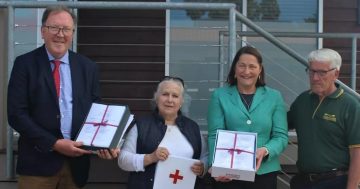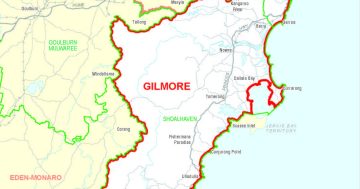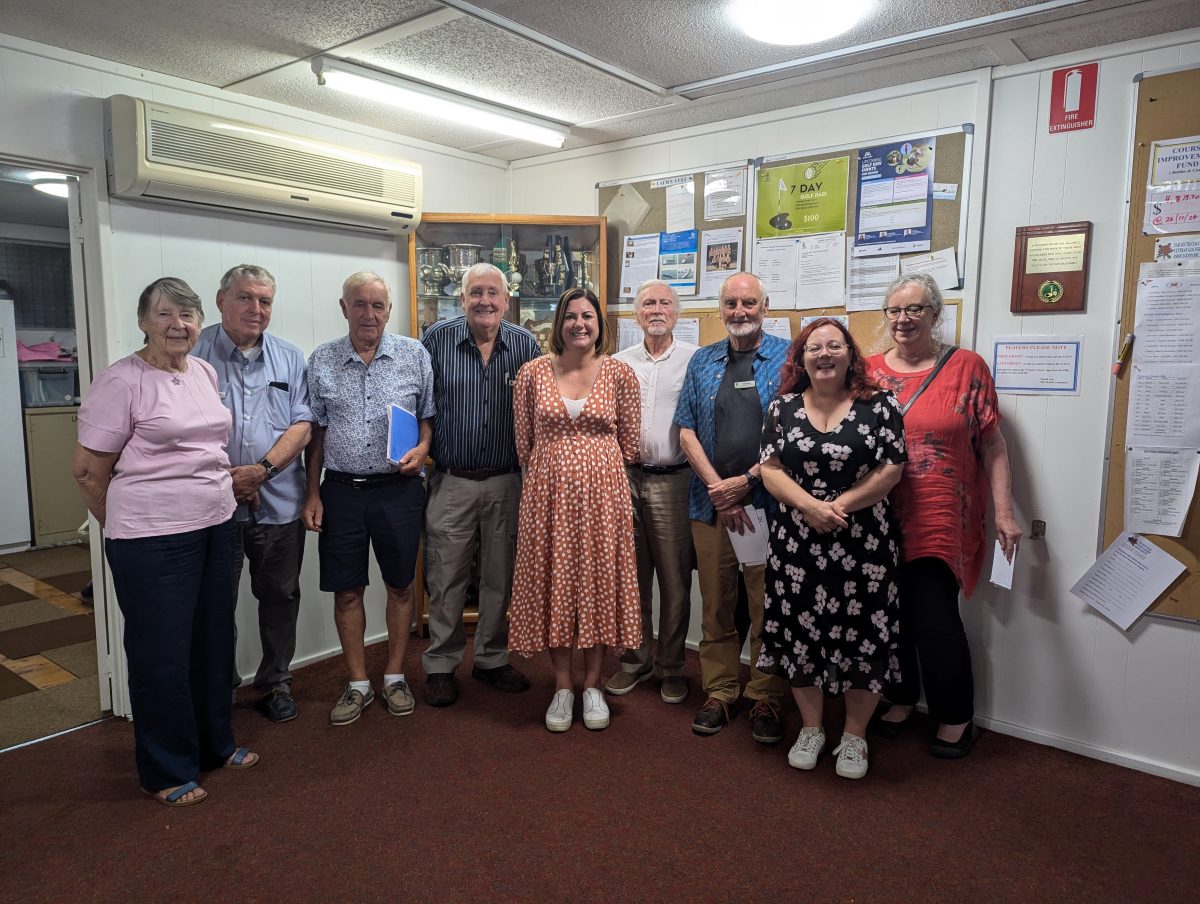
Tuross Head Progress Association committee members Evelyn Ashcroft, Tom Webster, Darryl Pretty, Max Castle, Member for Eden Monaro Kristy McBain, Dr Arn Sprogis, Gary Smith, Kim Ulrick and Jenny Irvine in December 2024. Photo: Tuross Head Progress Association.
A community group in Tuross Head is fighting for fairness as research has shown rural Australians are shortchanged almost $1000 per year per person in health funding compared to their city counterparts.
During the 2025 federal election campaign, Tuross Head Progress Association (THPA) is insisting that the federal candidates for the Eden Monaro and Gilmore electorates commit to fairness in funding and equitable access to healthcare.
Research published in 2023 by the National Rural Health Alliance found that every year each person living in rural Australia receives $850 less in healthcare funding than people in cities.
That equates to the 76,535 residents of the Eurobodalla and Bega Valley shires receiving $65 million less each year than if they lived in Sydney or Canberra.
THPA estimated $65 million would fund the equivalent of 72 full-time GPs, 72 nurses, plus additional primary care services. That is almost one additional GP and one additional nurse per 1000 residents.
Retired GP Dr Arn Sprogis, chair of THPA’s health subcommittee, said the situation was outrageous “because access to healthcare should be equitable, particularly primary healthcare, and based on need, not whether or not you live in a capital city”.
When he arrived in Eurobodalla Shire five years ago, the unfairness struck him.
“The simple fact is the 40-year history of underfunding rural health services is just unfair, regardless of which political party has been in government,” he said. “The two major political parties are based in capital cities and have been indifferent to rural needs.”
His review of press releases from the members for Eden Monaro and Gilmore over the past five years found no mention of fairness and equity in healthcare funding.
His focus on the federal members is because “roughly 80 per cent of the missing money is from the Commonwealth”.
Dr Sprogis, who also has a background in large-scale primary healthcare systems, said the situation arose when Medicare was introduced in 1983.
He said Medicare was a great financing system for city populations, but not for rural populations. “In economic terms it is a subsidy for medical professionals to work in the cities.”
As Medicare is based mainly on consultations and GPs naturally gravitate towards larger populations, Medicare funding follows the GPs.
“Medicare is fair where people can get a consultation, but if some of the population can’t get a consultation because there are no doctors, that area gets no funding from Medicare.”
He said in the past GPs were queueing to work in regional Australia, but within five years of Medicare’s introduction, rural areas were struggling to find GPs.
“Nearly 99 per cent of why we have a much smaller healthcare workforce per person in regional areas is because the GP workforce didn’t have to leave the city to earn a living,” Dr Sprogis said.
“No wonder people are sicker and die prematurely in regional areas compared with cities. It’s due to the lack of access to medical care,” he said.
“That missing money would fund a huge increase in staff like GP practice nurses and allied healthcare providers to support GP care, so there is a much bigger team of people providing access to healthcare,” he said.
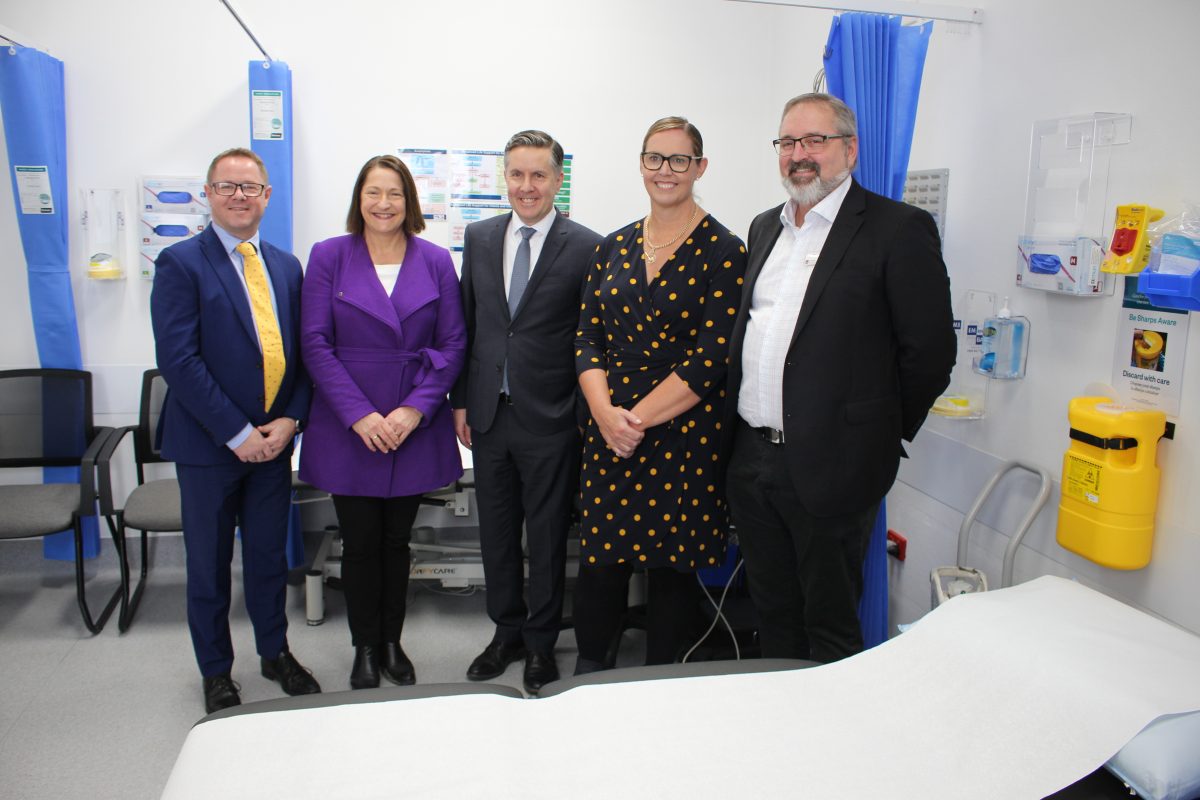
Minister for Health and Aged Care Mark Butler and Federal Member for Gilmore Fiona Phillips met with management and medical staff at the Batemans Bay Medicare Urgent Care Clinic in July 2024. Photo: Fiona Phillips MP.
The outcome the THPA wants is that urgent patients could see a GP on the same day and non-urgent patients within two days.
Dr Sprogis said there should be no delay in accessing that first point of care because it was critical to assessing how serious the condition was, how quickly it needed to be treated, and in what part of the broader healthcare system.
THPA has finished its initial round of briefing the Liberal, Labor and Greens candidates, and Gilmore’s independent candidate, on the issue.
“Our aim is that all candidates, regardless of political party, commit to fair funding and access for the Far South Coast,” Dr Sprogis said. “We are treating them all equally and providing them with the same information and support.
“Far South Coast communities want whichever party wins government to finally provide fair and just access to healthcare for everyone.
“We might be a tiny town but someone has to say this is completely unacceptable and we are encouraging every community organisation up and down the coast to say so,” Dr Sprogis said.
For further information or to support the campaign go the THPA website.







